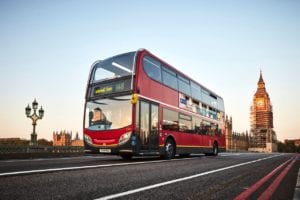
Shell and bio-bean are helping to power some of London’s buses using a biofuel made partly from waste coffee grounds.
The B20 biofuel contains a 20% bio-component which contains part coffee oil. While the biofuel is not available locally it is being added to the London bus fuel supply chain and will help to power some of the buses; without need for modification.
“Our Coffee Logs have already become the fuel of choice for households looking for a high-performance, sustainable way to heat their homes – and now, with the support of Shell, bio-bean and Argent Energy have created thousands of litres of coffee-derived B20 biodiesel which will help power London buses for the first time.” says bio-bean’s founder Arthur Kay.
“It’s a great example of what can be done when we start to reimagine waste as an untapped resource. We’ve started in the UK, but imagine the potential of a country like South Africa that drinks more than 3 billion cups of coffee a year. By rethinking our approach to waste, we can create smarter global cities and a brighter future for everyone.”
Diverting waste from landfill
The average Londoner drinks 2.3 cups of coffee a day which produces over 200 000 tonnes of waste a year, much of which would otherwise end in landfill with the potential to emit 126 million kilograms of CO2. Bio-bean works to collect some of these waste coffee grounds from high street chains and factories.
The grounds are dried and processed before coffee oil is extracted. Bio-bean works with its fuel partner Argent Energy to process this oil into a blended B20 biofuel. Six thousand litres of coffee oil has been produced, which if used as a pure-blend for the bio component and mixed with mineral diesel to form a B20, could help power the equivalent of one London bus for a year.
This latest collaboration is part of Shell’s #makethefuture energy relay, which supports entrepreneurs turning bright energy innovations into a positive impact for communities around the world.

